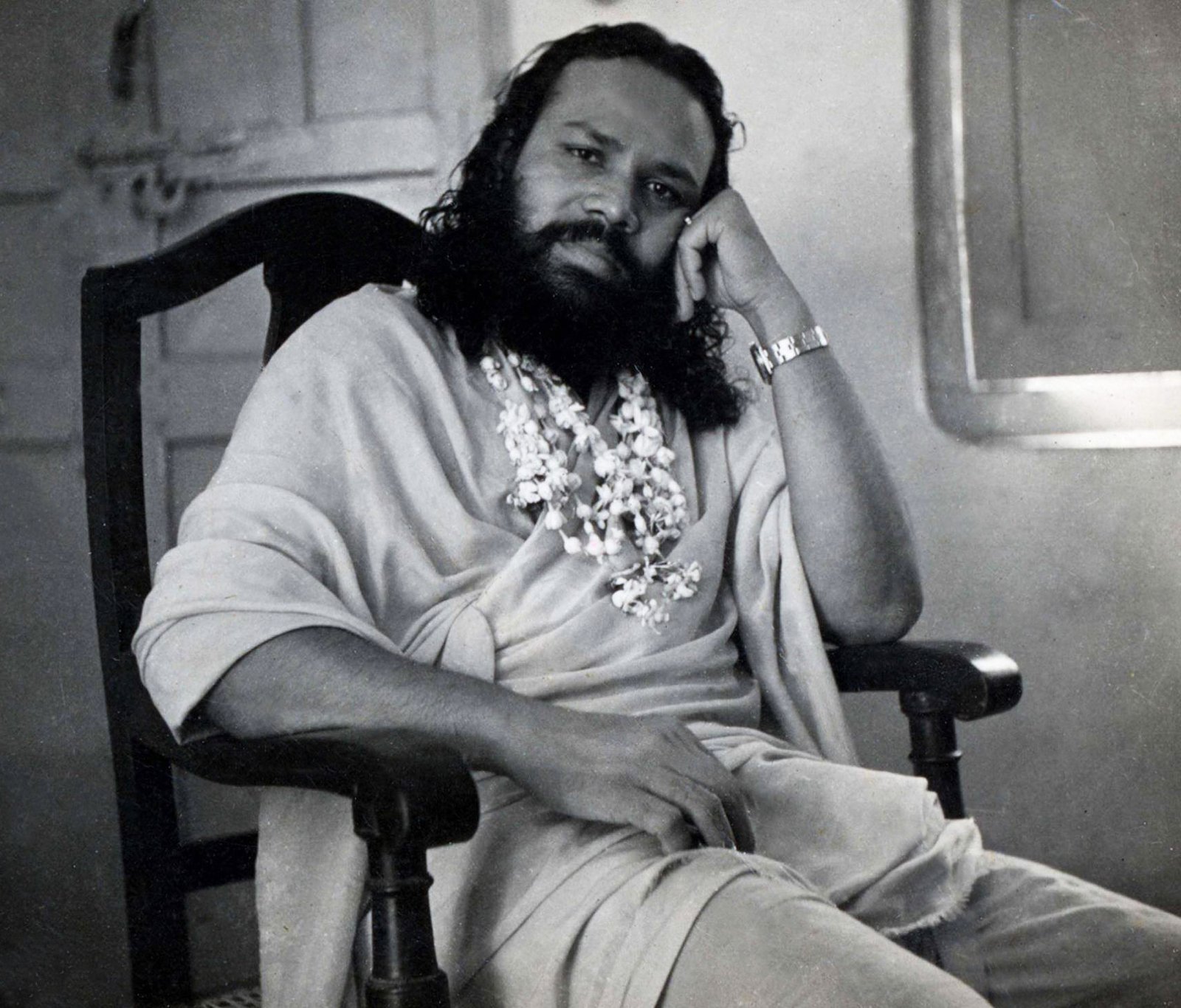Swami Prakashanand Saraswati’s perspective on aspiration, as reflected in the Shikchashtak, emphasizes the singular yearning for divine love and devotion. His teachings, in line with the eternal teachings of our scriptures, as expounded by Saints for thousands of years on this earth planet, encourage seekers to transcend worldly desires and seek spiritual fulfillment through loving devotion to the Supreme. In the excerpts we’ve included below, Swami Prakashanand Saraswati illuminates the human situation and path to perfect happiness found in Divine love.
Other article you might like: Swami Prakashanand Saraswati: Unveiling the Path to Divine Love and Knowledge
न धनं न जनं न सुन्दरीं कवितां वा जगदीश कामये ।
मम जन्मनि जन्मनीश्वरे भवताद्भक्तिरहेतुकी त्वयि ॥
Prakashanand explains, “This is the first verse of the Shikchashtak by Chaitanya Mahaprabhu. “Shikcha” means teachings and “ashtak” means eight. So, in eight verses, the Shikchashtak teaches us about the realization of Divine love. The meaning of this verse is as follows:
“O Supreme God, Who is the creator and protector of this world, I desire you! (Jagdish kamaye). I do not desire worldly luxuries or
wealth (na dhanam). I do not desire children, pupils, or disciples. Also, I do not desire a big name and fame or a big following (najanam). I do not desire worldly lust (na sundareim). I do not even desire to become famous as an artist, a poet, or a great writer (kavitamva). I only desire your desireless Divine love in every incarnation (mam janmani janmanishwarey bhavatad bhakti-rahaituki twai).”
These are the main worldly desires which people seek. Other desires are related to them. Briefly, a devotee says, “I do not desire anything but you.”
In practice, “desirelessness” is impossible. Some desires are essential. One can never be desireless, but the field of desire can be changed from the material to the Divine.
Why do you have desire in your heart? Let us think about it deeply. You feel unhappy with your situation and are looking for consolation and peace of mind which can become a lifetime search. If you live in a town, you feel disgusted with its noise and wish to live in a village. If you live in a village, you feel isolated from the attractions of a town and wish to live in or near one. Every change brings some satisfaction. But this process never stops. You are never satisfied with whatever you have, and you die dissatisfied.
This restlessness indicates that your mind does not precisely know what it needs because none of the previous situations were fully satisfactory. The answer is that your inner conscience is looking for Divine association and Divine love. Everything the world offers is either pleasing or displeasing. Neither condition can be lasting. Thus, the soul never experiences everlasting consolation.
The only way to extinguish your worldly desires is to receive the true Divine love, and to receive Divine love you have to desire Divine love. So, a complete desireless state does not exist. If you do not desire God, you must be desiring the world. So the devotee says, “I do not desire the world, I desire you, and only you.”
What does he desire from God? “Bhakti-rahaituki twai.” He says, “I want love, but it must be yours, and selfless at the same time. I want to experience the blissfulness of your love and to perceive your Divine beauty; that’s all I want. Wherever I am born, I do not mind as long as I have You in my heart.”
We can see from this verse that he is not seeking liberation. He is only seeking Divine love. There is a great misunderstanding in the world about the word ‘liberation.’ Liberation is a kind of nothingness. For example, if a person meets with an accident, has a complex fracture, goes to the hospital in extreme pain, and undergoes anesthesia in the operating room, what would happen? He would be temporarily liberated from pain. He would feel nothing, neither pain nor pleasure.
In the same way, liberation in the spiritual sense means you are liberated from both worldly miseries as well as Divine happiness. So there is no question of being happy or unhappy. You are just dissolved into a kind of nothingness where nothing is perceived, and nothing is experienced. That is called “mukti” or liberation or “kaivalyamoksh” of the gyanis and yogis.
Having learned that truth, the devotee says, “My Lord, I do not wish for liberation, because, if I am liberated, how could I experience your Bliss? How could I talk to you? How could I embrace you? And, how could I love you?” That is why the devotee rejects the idea of liberation. Besides, if he receives Divine love, he is automatically liberated from pain. If he is happy, he is not unhappy. Liberation from unhappiness is positively included in happiness. When you attain a Divine state in which you are entirely engrossed in the love of the Divine beloved, you are automatically liberated from all pains and miseries, and from the cycle of life and death as well.
Thus, only one desire should remain in the heart of a devotee, and that is, the desire to serve and selflessly love his Divine beloved.
“”प्रभुता पाइ जाहि मद नाहीं।” Worldly possessions induce vanity and pride in the human heart, which multiply worldly involvement and reduce the chance of humbly dedicating oneself to devotions. So, a devotee rejects all the pride-giving achievements of the world which may become a hinderance to the accomplishment of his Divine goal.”
In this way, Swami Prakashanand Saraswati clearly enlightens us with the deeper meanings of the first verse of the Shikchashtak and explains its practical application in the lives of those sincerely desiring God’s Divine love.
Dive into Swami Prakashanand Saraswati’s insights—purchase his books here.
